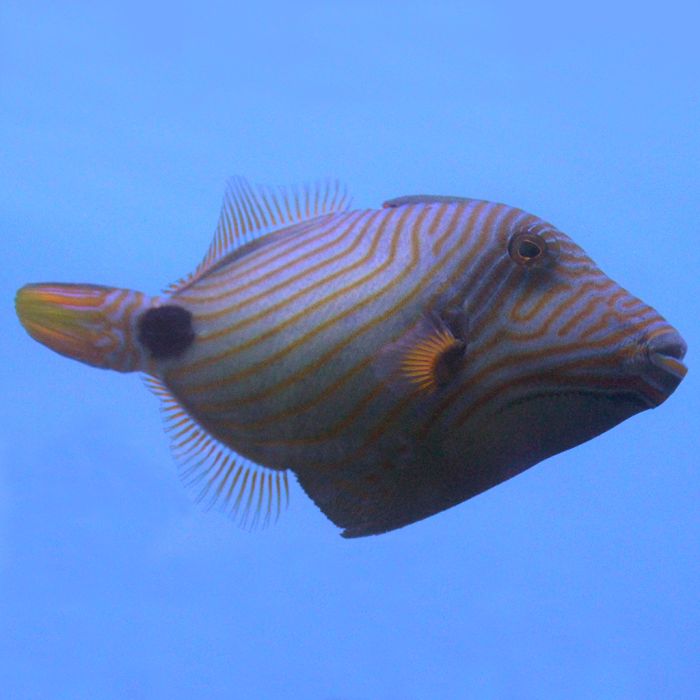Undulated Trigger (Asia Pacific)
Triggerfish are extremely personable and entertaining, and make great tank mates with other fish of similar size or temperament. They will eat invertebrates, especially shrimp, but also other crustaceans, mollusks, bivalves, sponges, tunicates, feather dusters and more. They may move and flip over rocks to search for food underneath. They do not typically bother corals. They may chase and bully other fish, especially those smaller than themselves. They may be aggressive with other triggerfish and two should only be kept together in sufficiently large aquariums.
Triggerfish are named for their first dorsal fin which is typically kept flat against their back but can be cocked into an upright position and cannot be forced down. When threatened they swim into the smallest cave they can fit in and lock their fin up which makes them impossible to be dislodged by predators. This fin may also become tangled in nets.
Triggerfish are carnivores and should be fed two to three times a day a high quality diet of meaty items such as Mysis shrimp, krill, silversides, clams, and chopped seafood. Hard shelled items are important to keep their teeth in good shape. Algae clips with nori are a favorite treat and may be quickly devoured. They are easy to keep and usually learn to eat dry foods as well. Triggerfish are heavy feeders and thus strong filtration is necessary.
The Undulated trigger is covered in alternating stripes of bright mustard yellow and turquoise all over. The markings become dark at the base of its tail and its caudal fin is bright yellow. Overall it has a very flashy and bizarre appearance. It is one of the most aggressive triggerfish and is best kept only with other large aggressive fish and never with other triggerfish. It is more likely than other species to bite at invertebrates and corals. It grows up to 12 inches and requires an aquarium of at least 125 gallons.
















